Curriculum
Early Education and Childcare Program
With a diverse, fun and challenging curriculum, we create a stimulating, nurturing and varied environment with lasting relationships in our immediate community.
Included in our early childhood curriculum are certain key focus areas that emphasise our principles of holistic development and love for learning which sets us apart from other childcare centres. Our key focus areas are social, emotional, physical and cognitive development.
Key Focus Areas
Our early childhood curriculum includes certain key focus areas that emphasise our principles of holistic development and love for learning which sets us apart from other early learning centres.
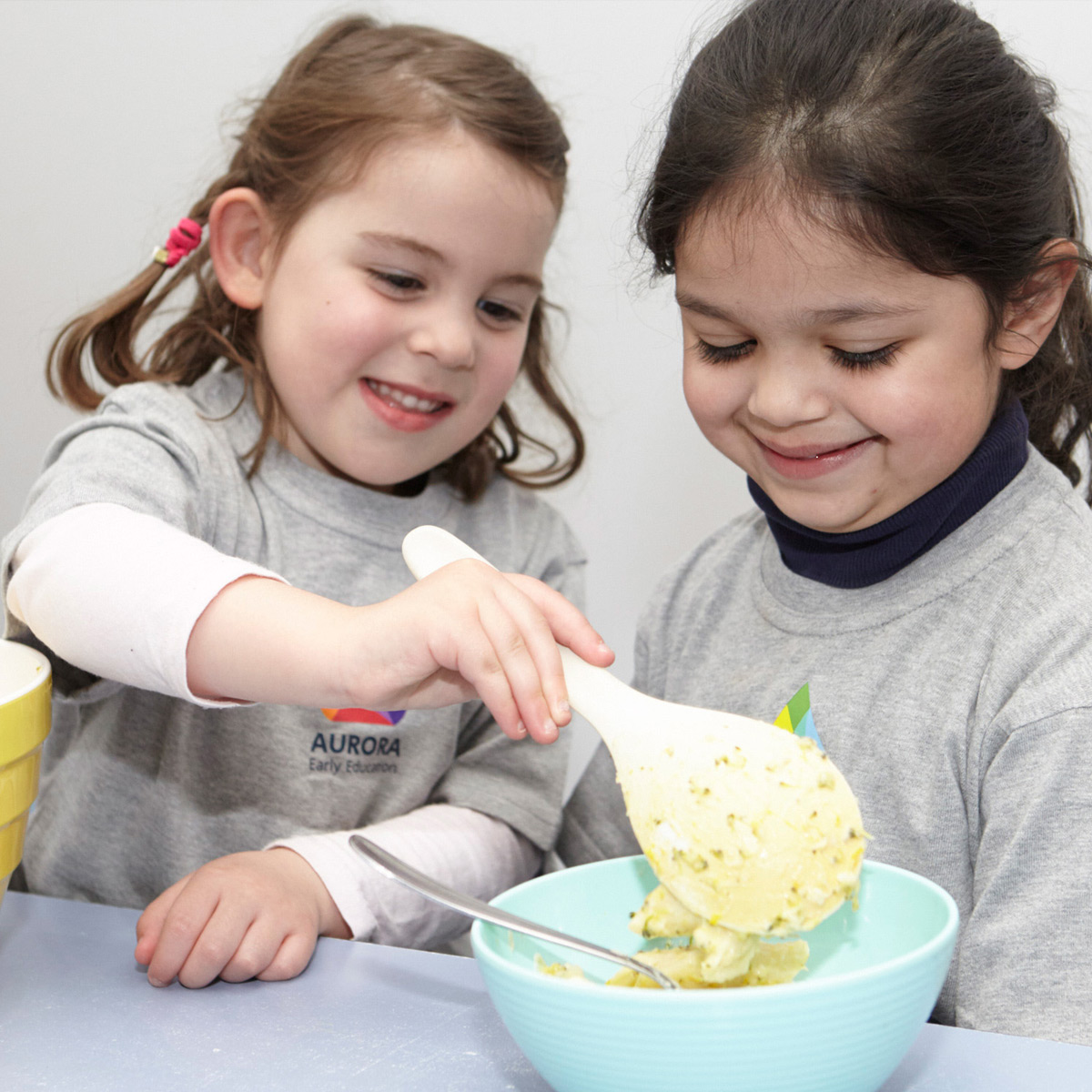
Health & Wellbeing
At Aurora, health and wellbeing represents the ‘care’ we provide our students; but it also represents a critical area of learning in our curriculum. We teach the skills of personal care and independence. The everyday routines that involve eating, drinking, sleeping, toileting, applying sunscreen and cleaning up after ourselves are as valuable learning experiences as any other with academic outcomes. The students learn about responsibility, autonomy and agency and are supported to complete tasks. They can also develop a more definite sense of their own identity and belonging by establishing what they are capable of and what they can contribute to the group.
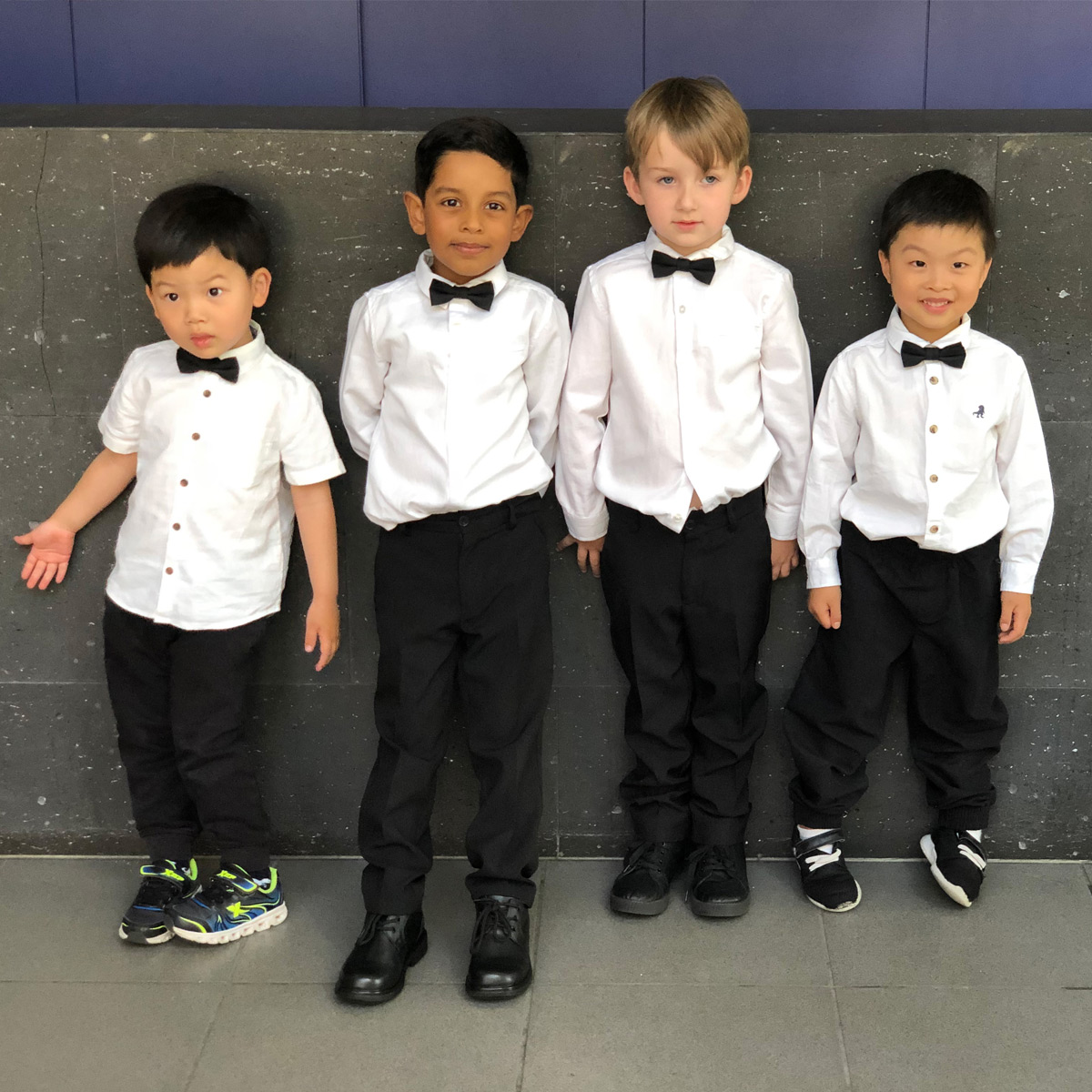
Self Expression & the Arts
Teaching arts, as an expression, plays an essential role in the Aurora curriculum. Painting is not always only about the act of marking paper with paint. Which colours to choose and how big the brush stroke should be and how a child feels when they are painting form a type of self expression. The colour choices and brush strokes can form the starting point of the conversation to ask a child why they made those choices. Arts opens up an avenue to allow children to express their preferences, feelings and thoughts in a way that is unique to them.
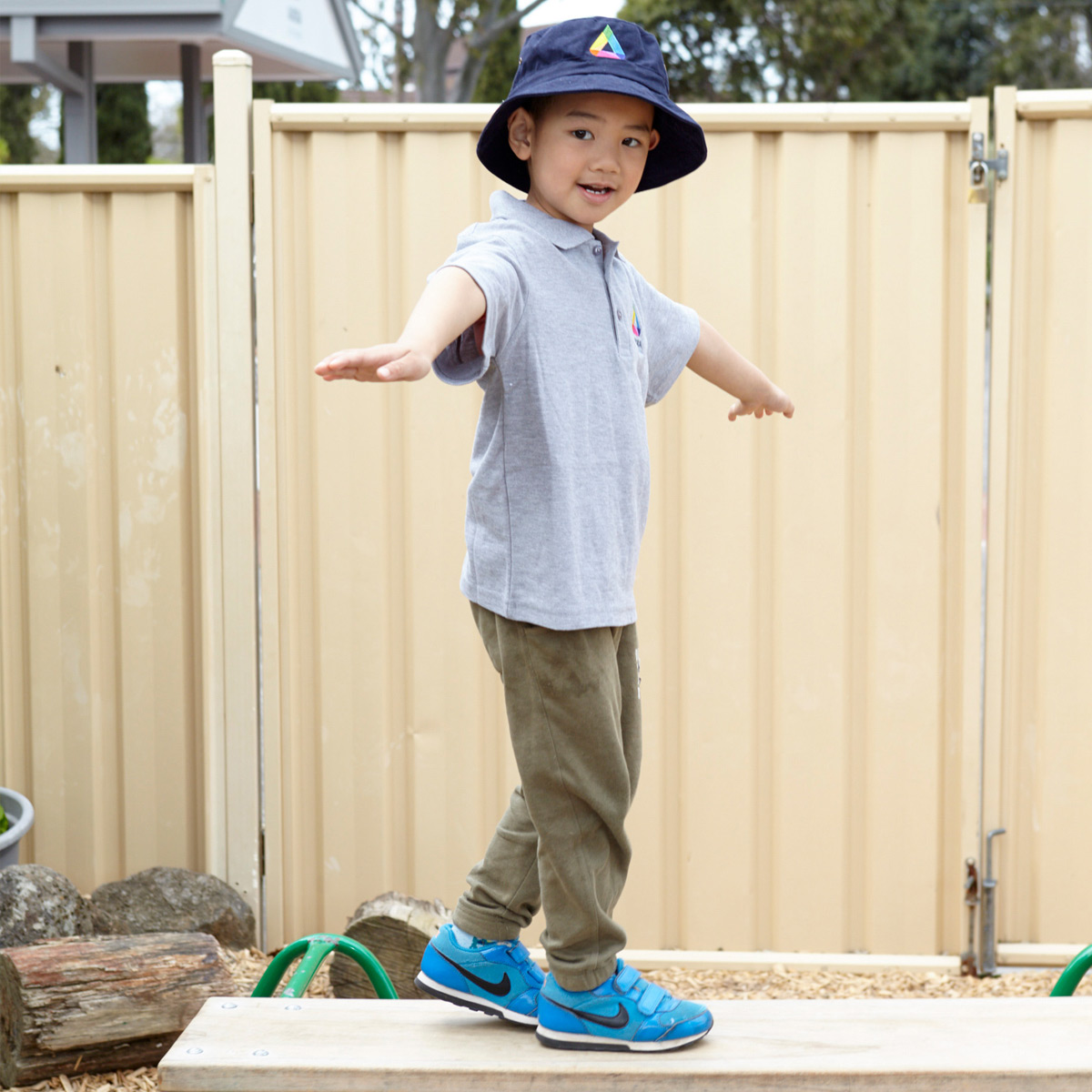
Physical Education
Any observation of children tells us that they are not inclined to remain still, the natural desire to move suggests the importance of physical education in the development of gross and fine motor skills to understanding how the body works. A child’s first language is to move their body; an example is how a baby explores objects with their mouths asking the world “What is this thing?”.
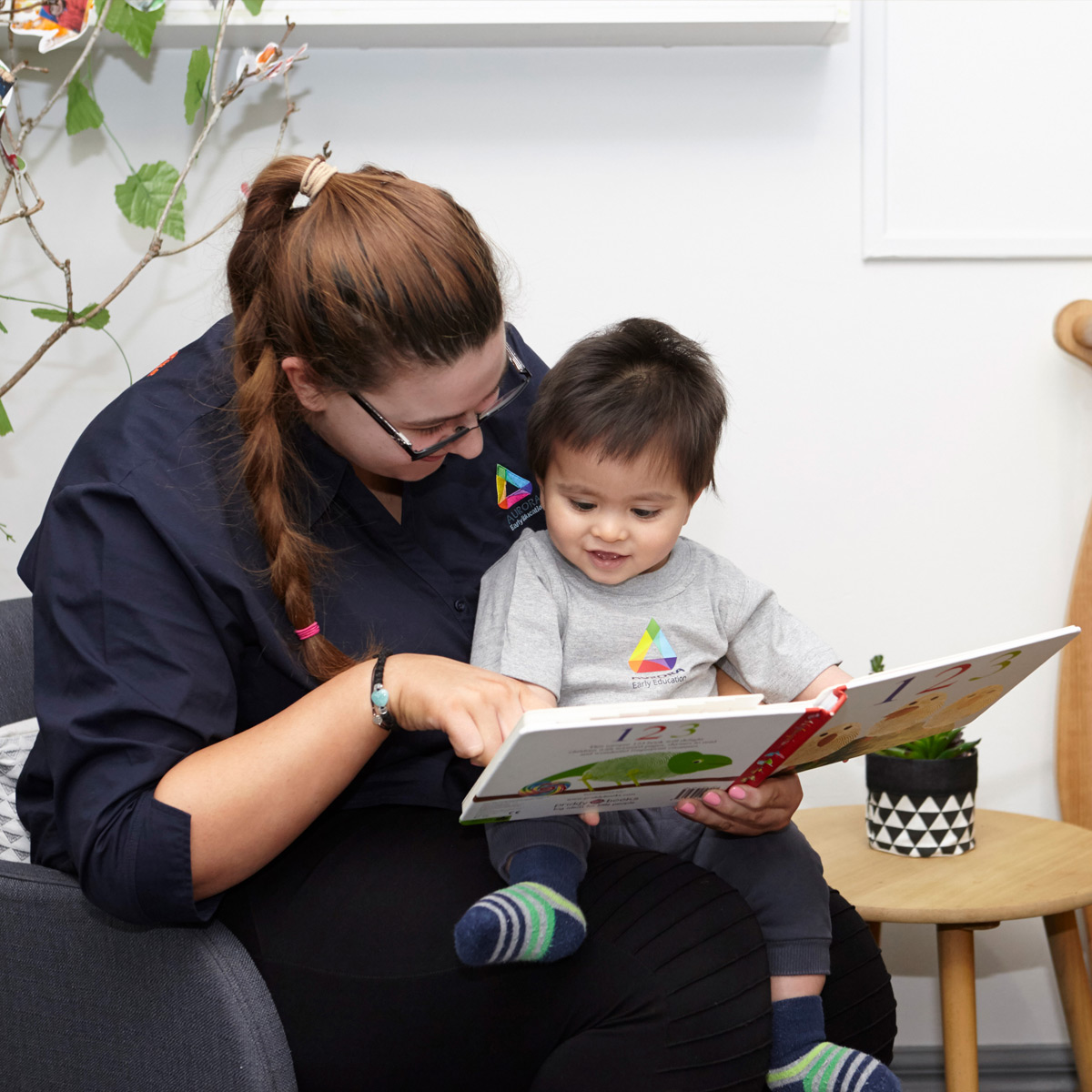
Listening, reading, writing and recognising
At Aurora, we understand the importance of sharing books and recognise this is often the first formal learning experience children have with their families. By reading with children, from as young as possible, we can promote the development of listening and vocabulary, recognising sounds and pictures and later in a child’s development, reading and writing. All families should be involved with the Aurora library and no child, regardless of the resources they have at home should miss out on the incredibly important experience of reading a story with their families at home.
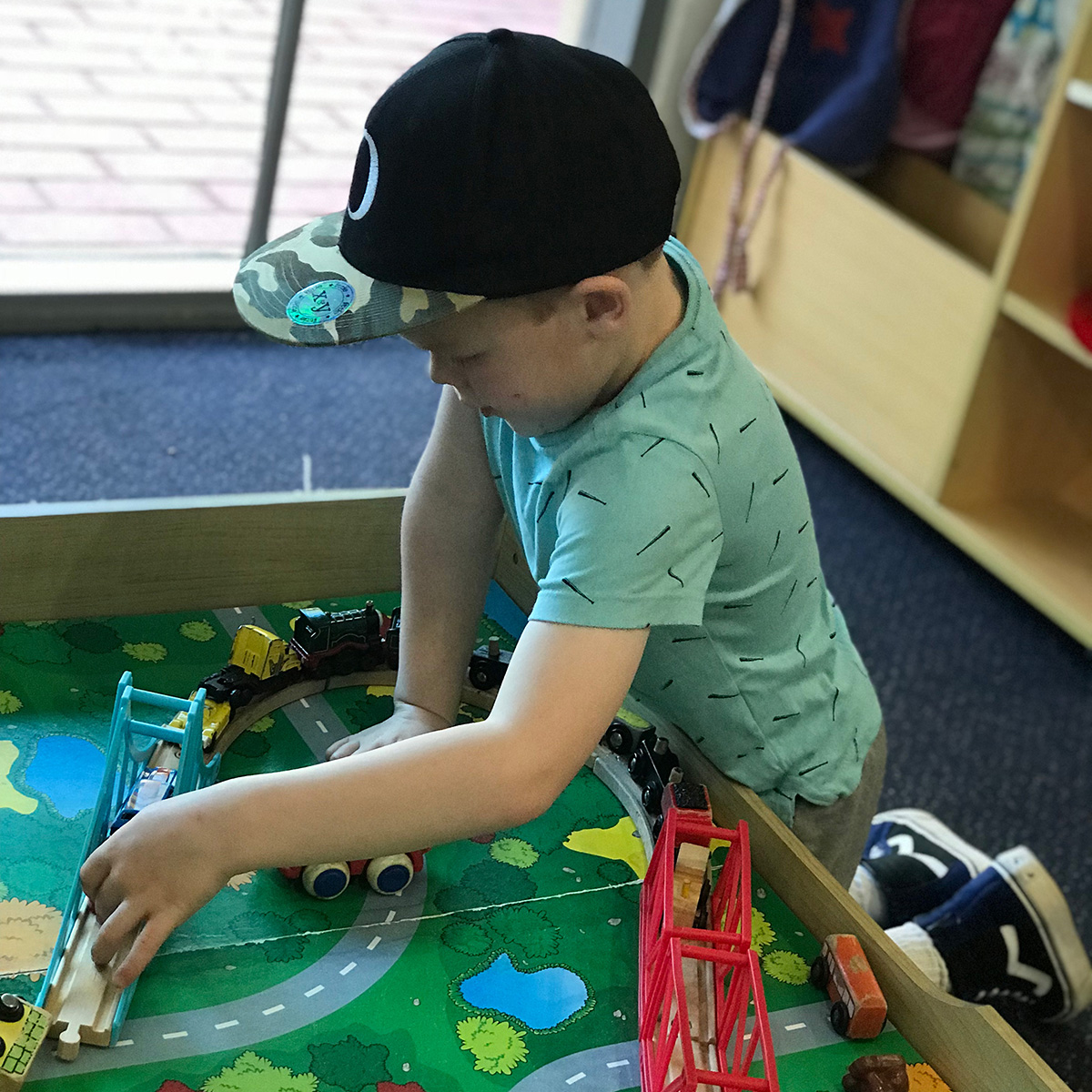
Construction, engineering and design
Play that promotes cause and effect, trial and error and problem-solving skills are all early opportunities for children to construct, engineer and design. To help our students make sense of their world, we encourage conversations about how a bridge works or how a car moves, to challenge a child to think beyond the previously accepted and extend their knowledge. It is also essential for children to feel that they have the potential to influence the world with their thoughts and actions.
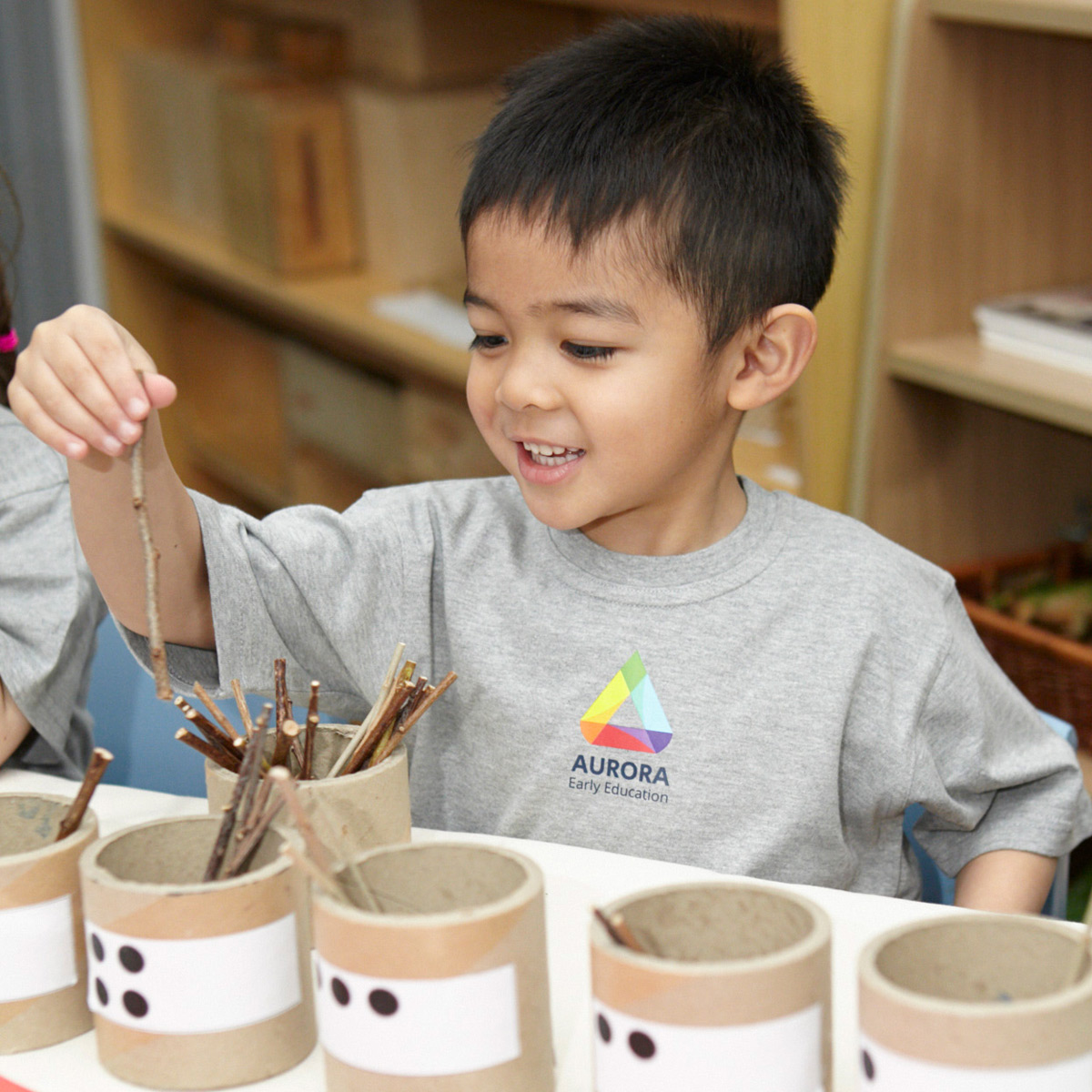
Science, technology and mathemetics
Science and mathematics form essential points of cognitive development in children, at Aurora, we start with the concepts of counting things, understanding different shapes and patterns and continually asking why? Children often relate counting to their world very early on; wanting more or less, recognising big and small, how old they are or how many pets they have can start a conversation about mathematics. A big part of mathematical understanding for children is developing a vocabulary that they can use, so educators need to incorporate mathematical concepts and topics into day to day experiences and conversations.
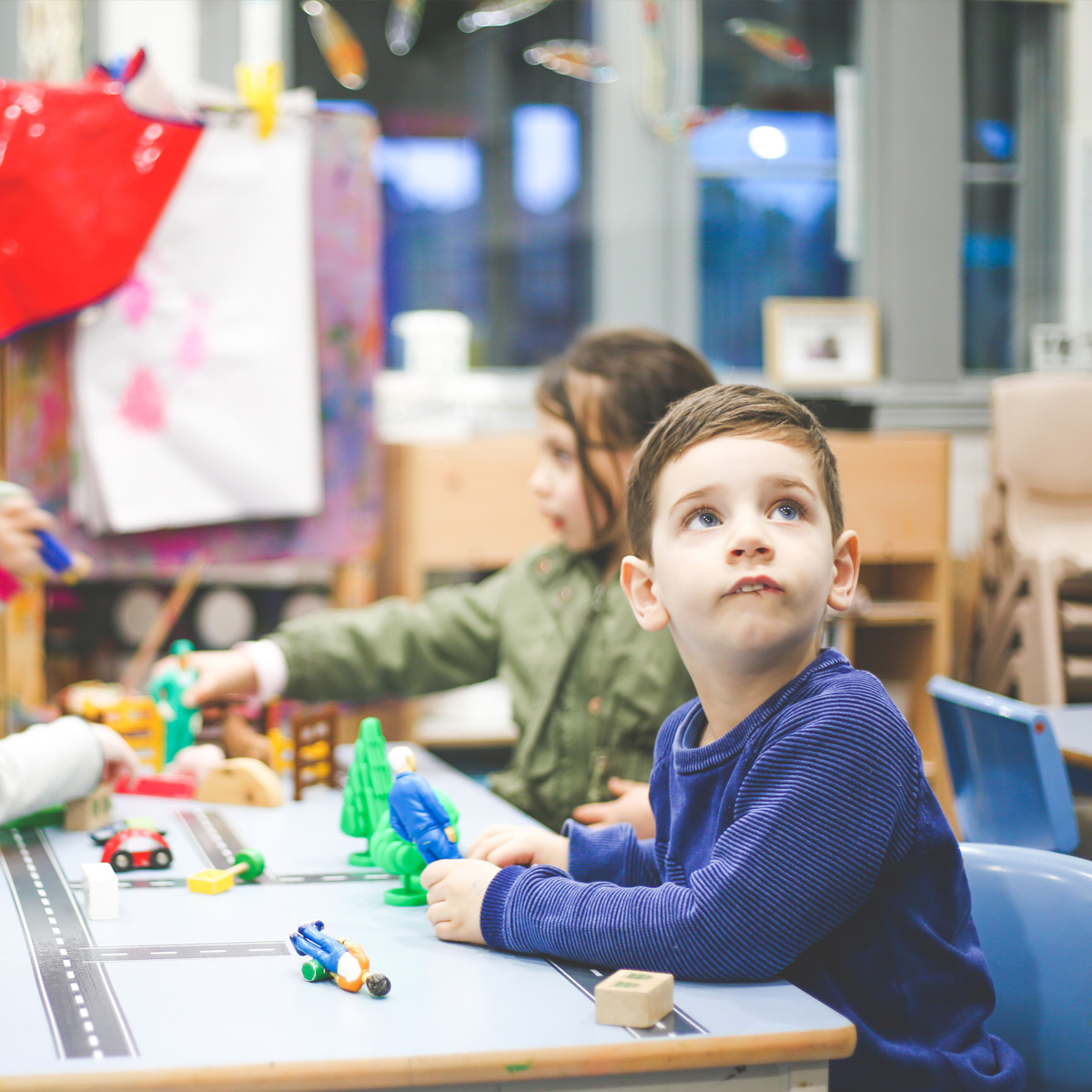
Topics of interest and projects
All children are capable of making meaningful contributions to their learning, and at Aurora, we encourage students to bring their interests to life through project work. Students need the time and space to come and go from education, meaning that just because it is home time does not mean their experience needs to stop, it can be carried on at home or kept safe so they can pick it up again the following day. Our educators are creative in how they promote continuous learning at Aurora. Young children are limited with their concentration span, meaning they need to move from one experience to another. Project work offers an excellent opportunity for intentional teaching as it often requires instructions from educators, and the children can take turns with educators to be in charge of the learning.
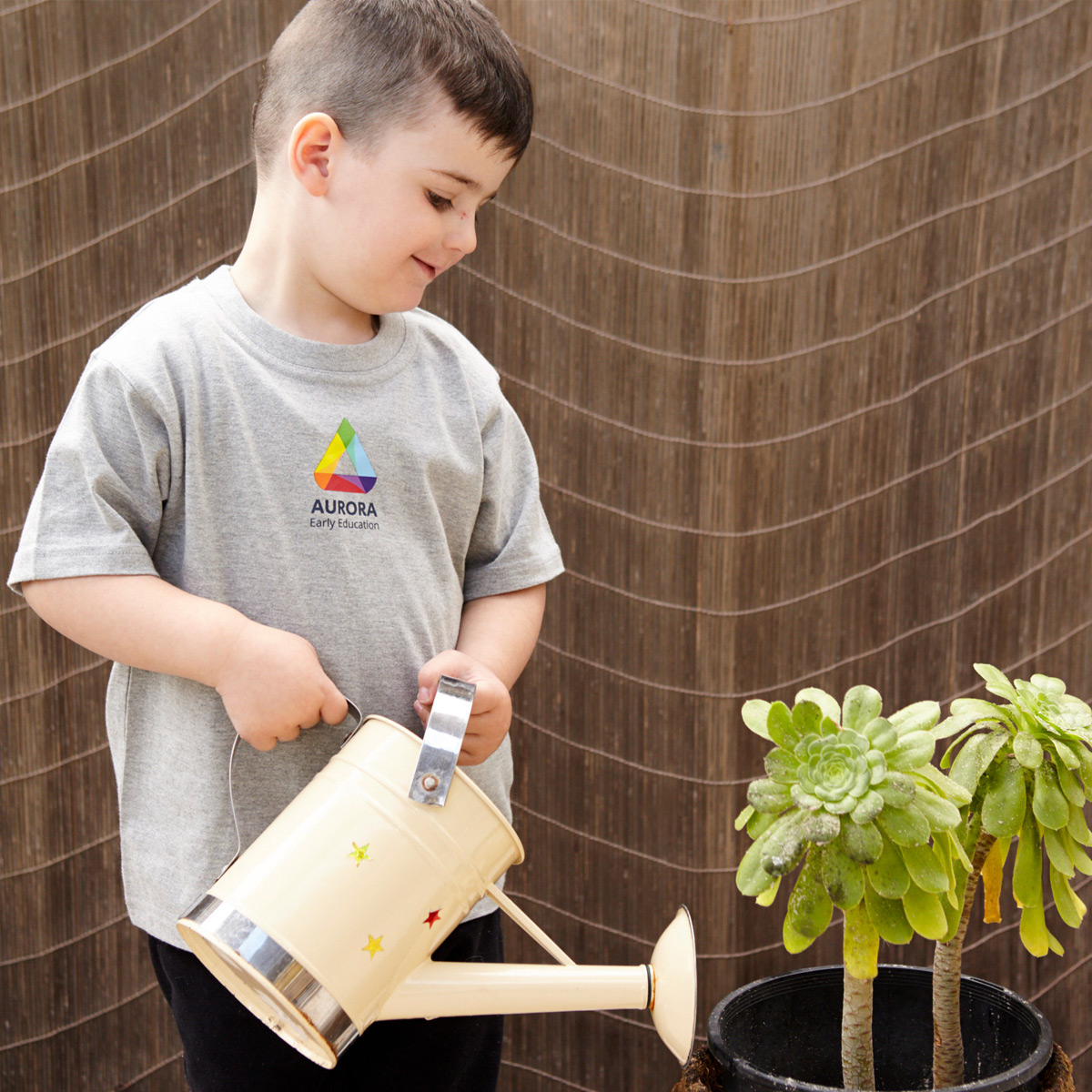
Nature
Aurora focuses on our innate attraction to nature and natural processes as humans. Our curriculum incorporates the Biophilic theory, which suggests that we all have a genetic connection to the natural world built up through hundreds of thousands of years of living in agrarian settings. Biophilia is of ever-increasing importance to our health and well-being in our built-up environment. The biophilic design uses these ideas as principles to create a human-centred approach to learning with numerous benefits to our health and well-being.
Specialist Sessions
In line with Aurora’s core values of embracing all the elements of nature, our educators set up learning environments and experiences around their rooms to reflect elements of the natural world. Activities are carefully selected and thought about to reflect children’s interests. We aim to inspire curiosity and creativity by allowing children many opportunities to explore and investigate.
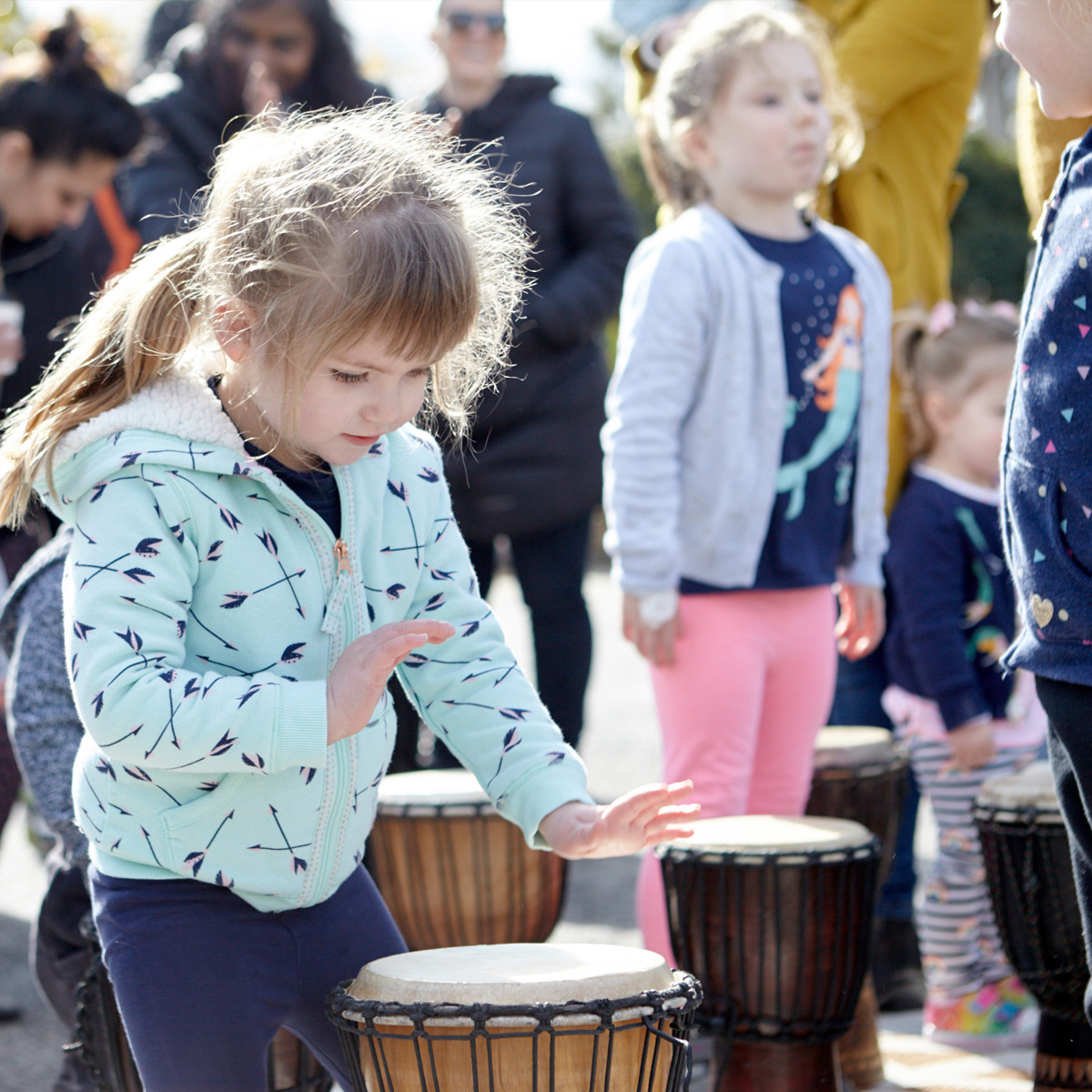
Happy Feet Fitness
Happy Feet Fitness educates children on the importance of keeping fit and healthy through exercise, healthy eating and having lots of fun! The program is run by qualified fitness teachers and is driven by the vision to expand the knowledge and understanding of children living a healthy lifestyle. The classes are dedicated to teaching and encouraging healthy hygiene practices and physical fitness. Healthy eating and physical activity are also the core motivators of the Happy Feet Fitness program. Children who participate in Happy Feet Fitness benefit from guidance and learning about health, fitness and wellbeing.
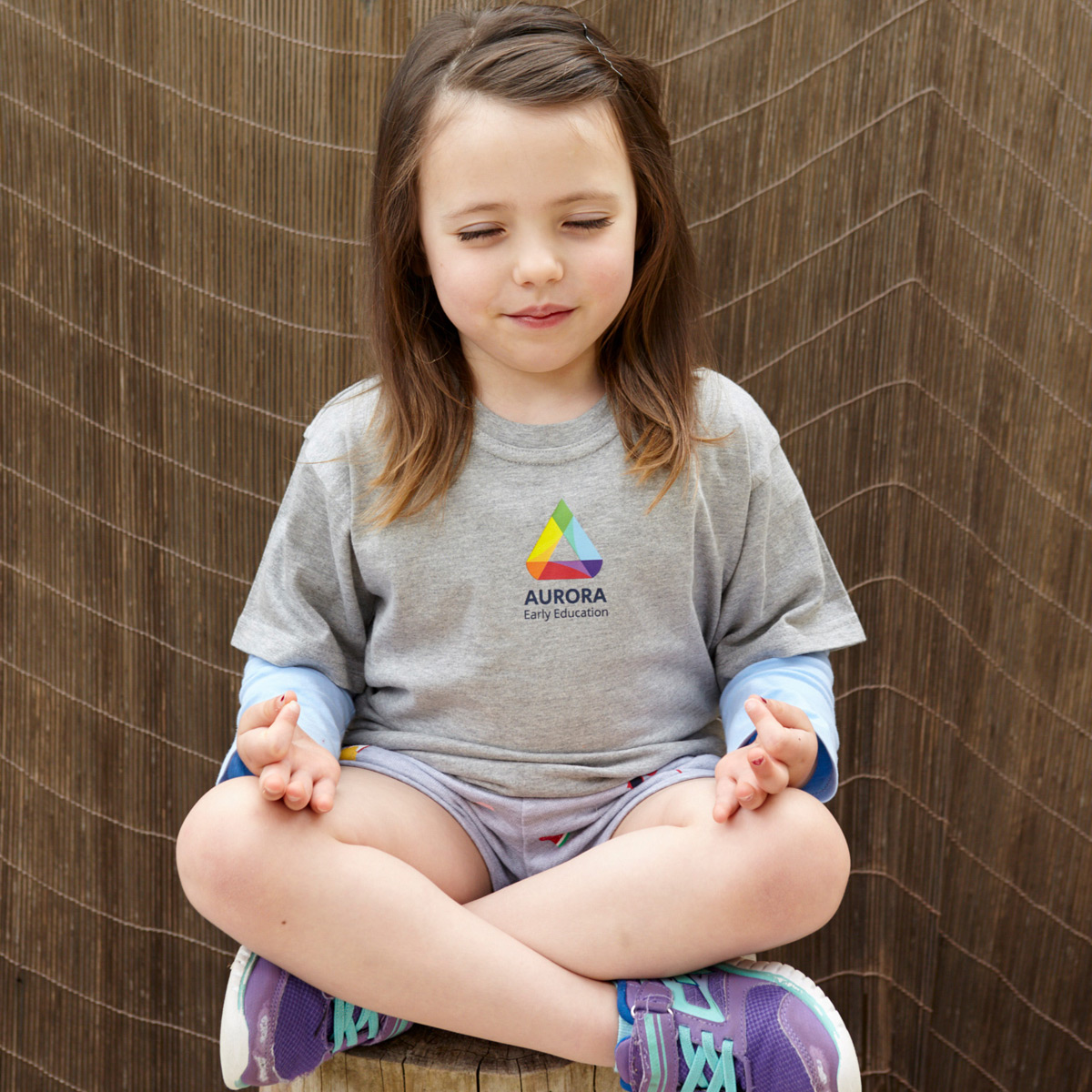
Yoga Champs
Yoga allows all children the opportunity to strengthen physically, mentally and emotionally in a natural, healthy and enjoyable way. It encourages self-esteem and body awareness with a physical activity that’s non-competitive. In our increasingly stressful and noisy lives, it teaches children how to relax, focus and be calm, while having fun at the same time! We incorporate yoga into our service on Wednesdays to engage the children’s hearts, minds and bodies. During our yoga class it helps children to develop social/emotional intelligence, communication skills, trust and empathy while helping to provide for a calmer and more productive learning environment.
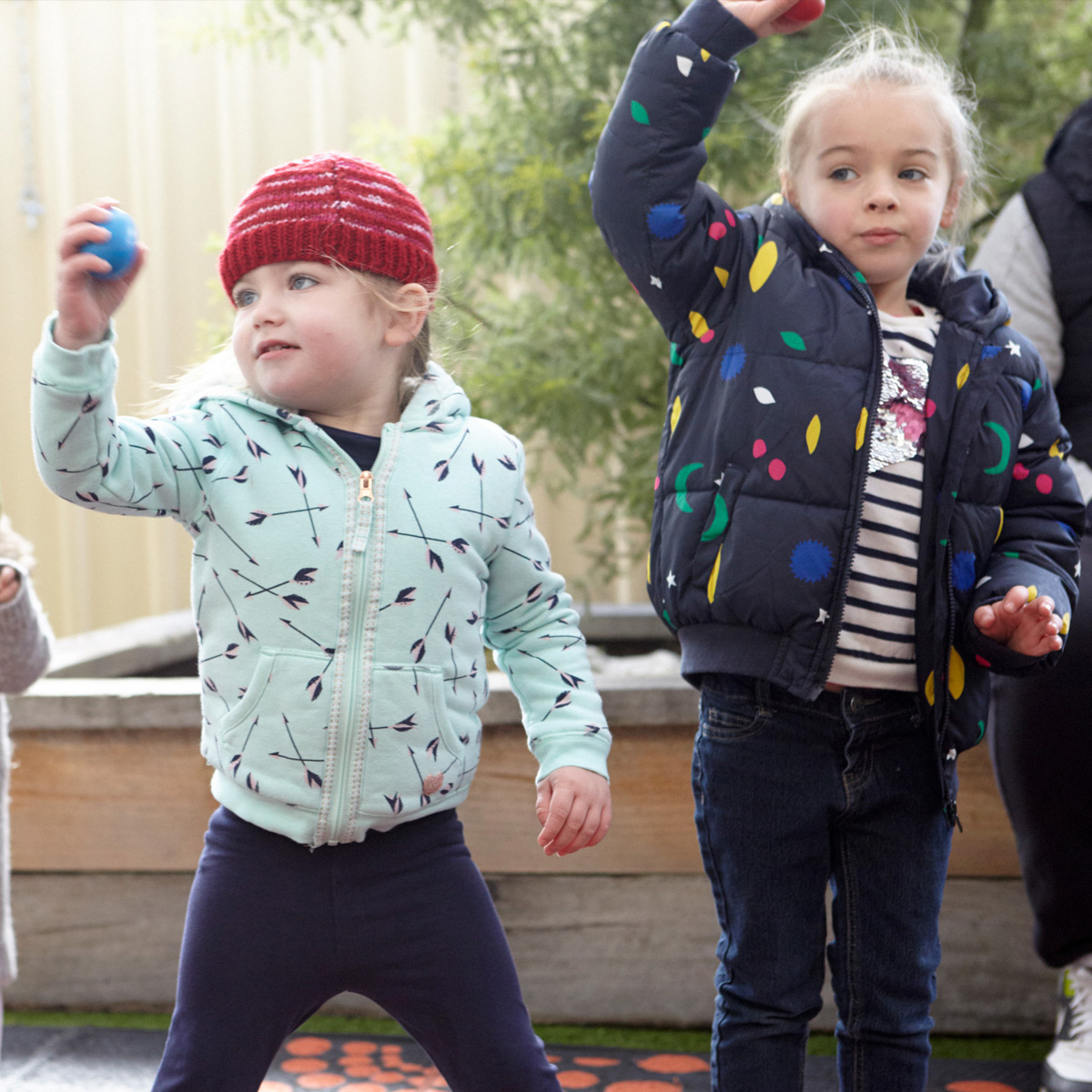
Hey Dee Ho
Hey Dee Ho uses traditional children’s songs, current contemporary songs and dances and a selection of original Australian compositions. The curriculum has been developed in conjunction with the Australian Institute of Music and Childhood development, to incorporate the key areas of childhood development – physical, emotional and intellectual to support brain development for infants, toddlers, Pre-Kinders and Kindergarten children. Hey Dee Ho is delivered weekly and is in alignment with the ‘Early Years Learning Framework for Australia (Belonging, Being & Becoming)’. The curriculum is presented to maximise learning outcomes and comply with national guidelines.
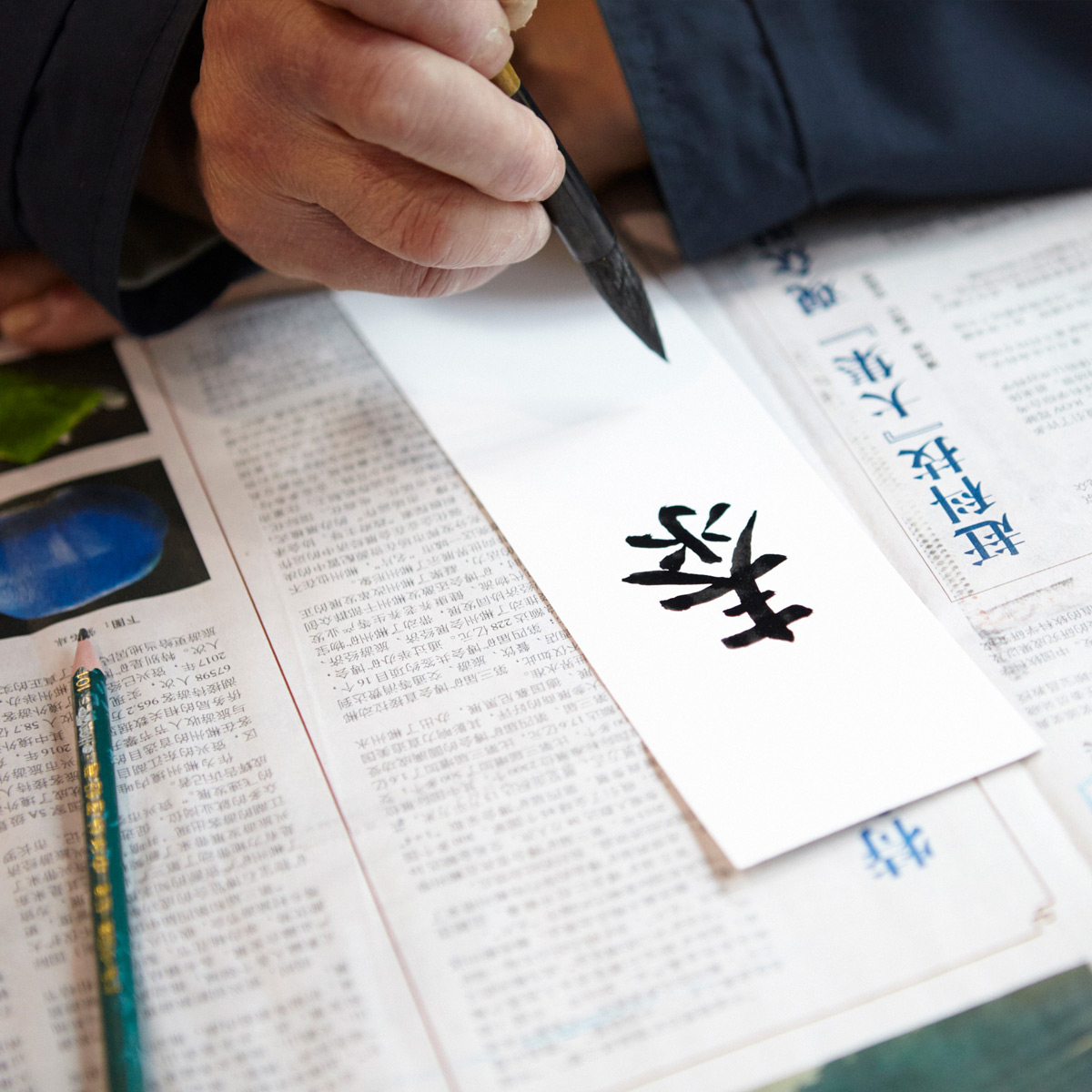
LCF Mandarin
We incorporate Mandarin classes in our program on Fridays where the language is delivered through fun activities and many already popular preschool games – they’re all just in another language. Behind the fun lies a carefully structured program specifically designed for all age groups to learn a second language quickly and naturally. Each week new words and phrases are added and consolidated over the term. The teachers use beautiful resources and the lively sessions engage the children and room teachers in each activity. Learning a second language develops critical and creative thinking skills.
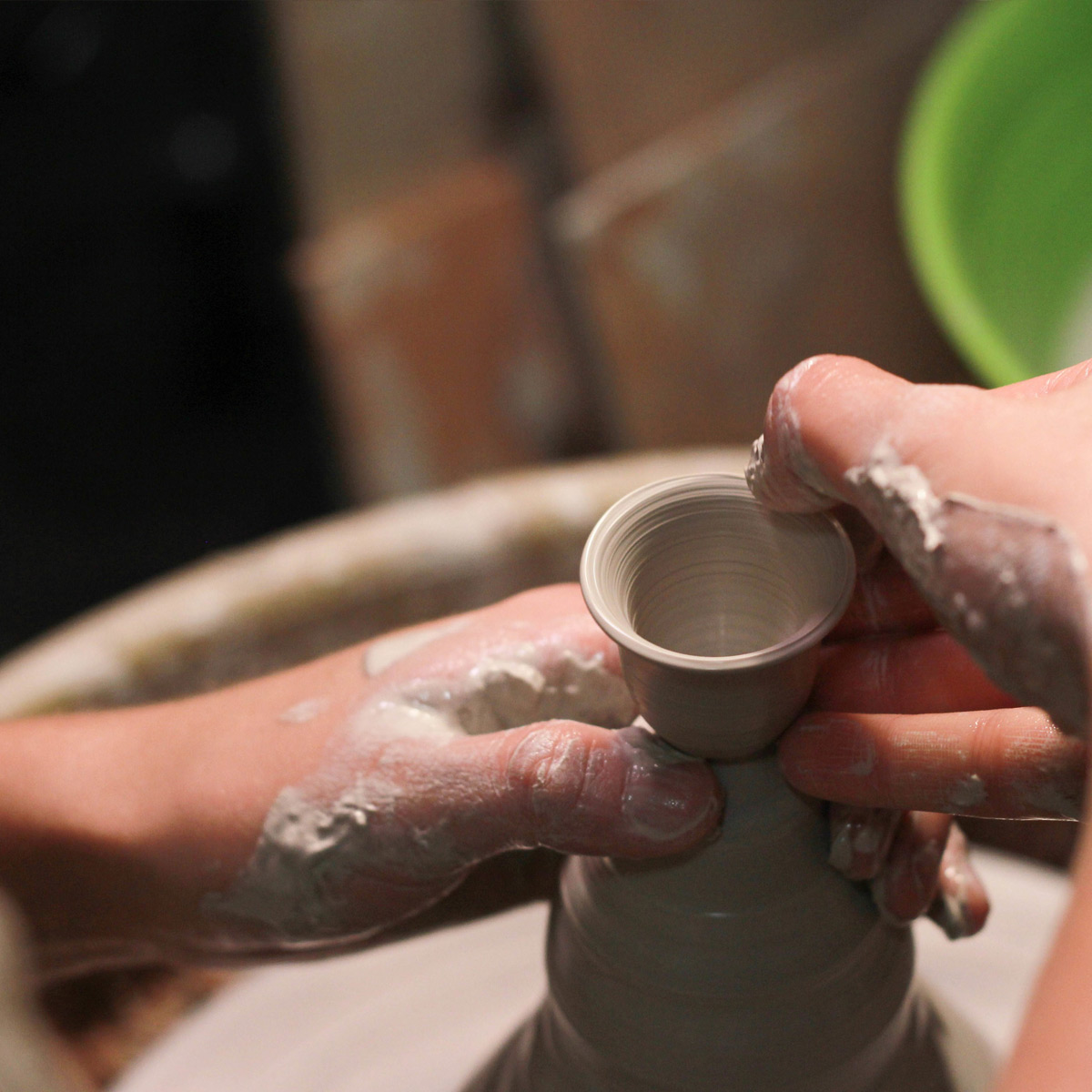
Pottery
Possum Potters is an optional class offered to our 3-5 year old program. Clay is used as the primary medium through which children are introduced to art. The approach of pottery supports the assumption that the real value of art lies in recognising it as a highly individual language that helps children to make vital sense of their world. All children reveal their creative impulses long before they start school, so pottery is great introduction to their life experience. Creative exploration is as central to a child’s existence and supporting exploration of different mediums and materials will encourage creative flow and confidence.
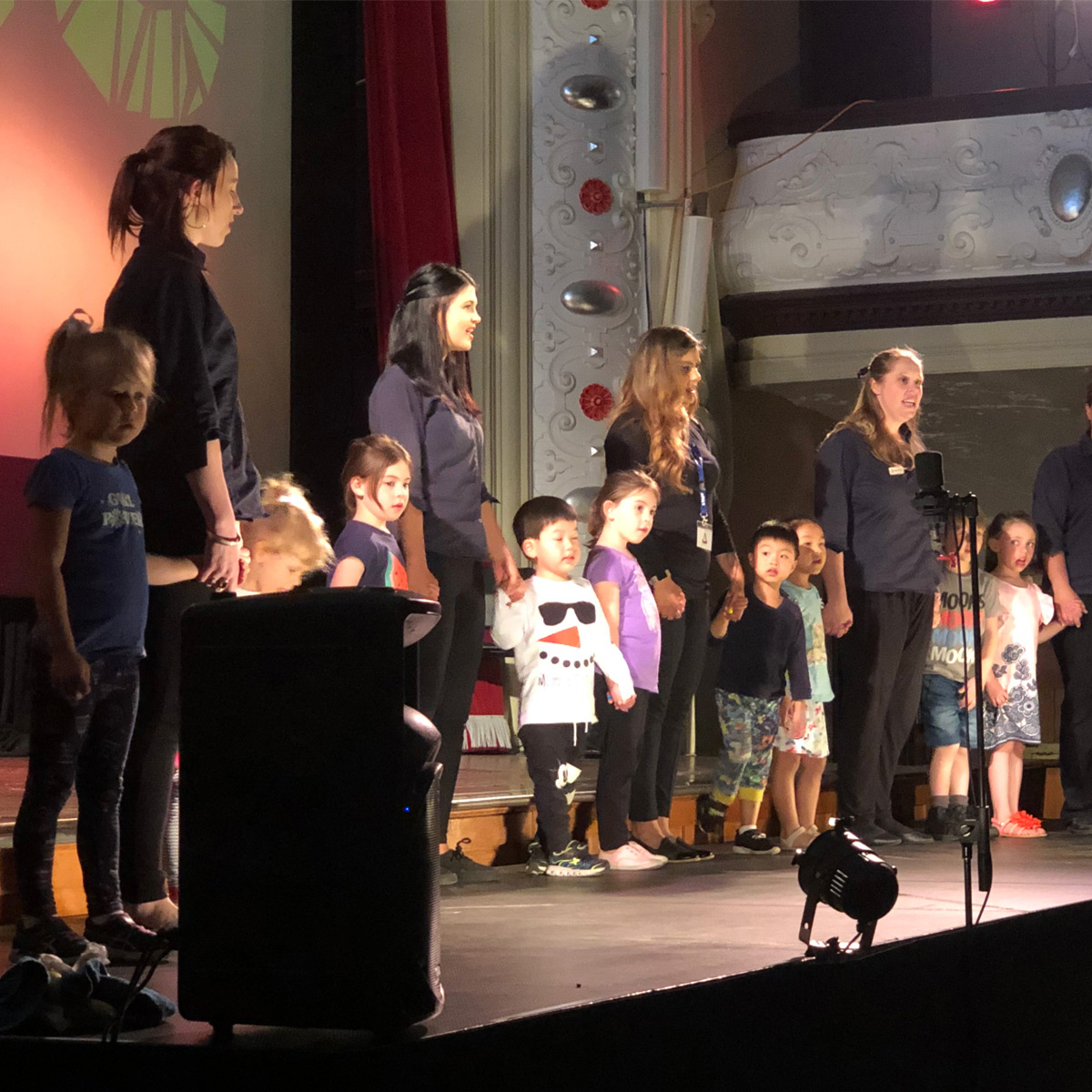
Theatre and Community Studies
Our Theatre and Community program aims to teach basic concepts of performance and the stage. The children connect with different sects of the community to create a performance for a large audience. The purpose of this specialist class is to engage children in the art of public performance, understanding how to work with a diverse range to people and study big social topics such as human and civil rights, equality and humanitarian issues. While the performances are the outcome of the studies, the aim for the service is to enjoy and gain a rich learning experience from the process.
Our Theorists
Our professional early childhood educators maintain up-to-date knowledge of recent pedagogical research and best practice. At Aurora, we draw on a number of pedagogical theories as inspiration behind our teaching style.
Maria Montessori
The Montessori approach encourages learning through opportunities in spontaneous, purposeful activities with the guidance of a trained adult. It encourages children to develop concentration and self-discipline while moving at their own pace.
Reggio Emilia
The Reggio Emilia approach is innovative and inspiring, valuing each child as strong, capable and resilient. Each child has a deep curiosity and potential that informs their understanding of the world and their place within it.
Kathy Walker
The Walker approach seeks to promote lateral and creative thinking, asking children to initiate, explore, problem solve, take risks, think deeply and become increasingly motivated to learn, try and be resilient.
Multi-age Learning
Each age group learns each other to practice their leadership skills, gain independence and interact meaningfully with love, empathy and greater understanding as part of the Aurora philosophy.
Aurora Services
At Aurora Early Education, we give your child all the time they need to learn in a caring, friendly and fun space. Our Love & Play philosophy means all children are treated with respect and given attention at every moment of the day.
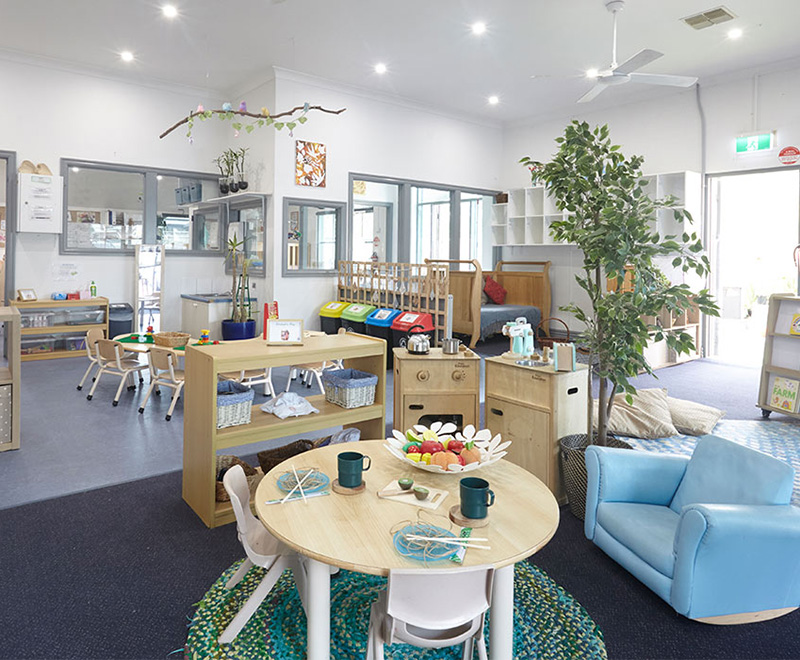
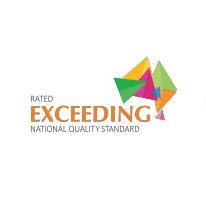
Quality Assessment Framework
Aurora Exceeds National Standards
The National Quality Standard sets a new national benchmark for the quality of education and care services. It helps families make informed decisions about education and care for their child.

